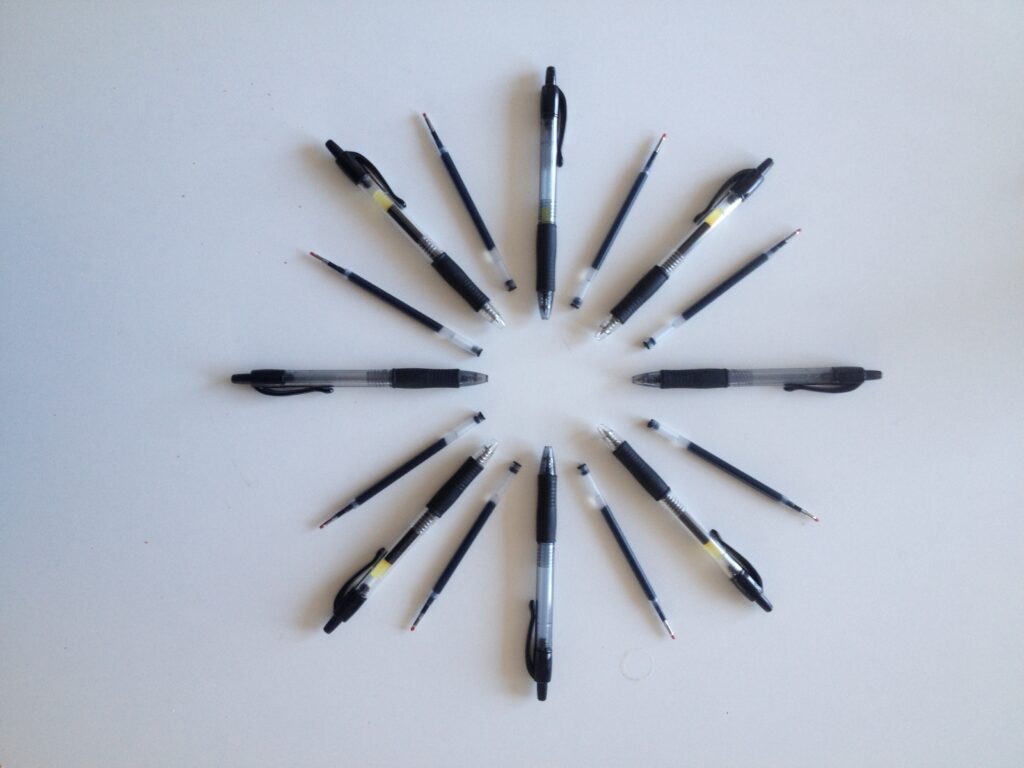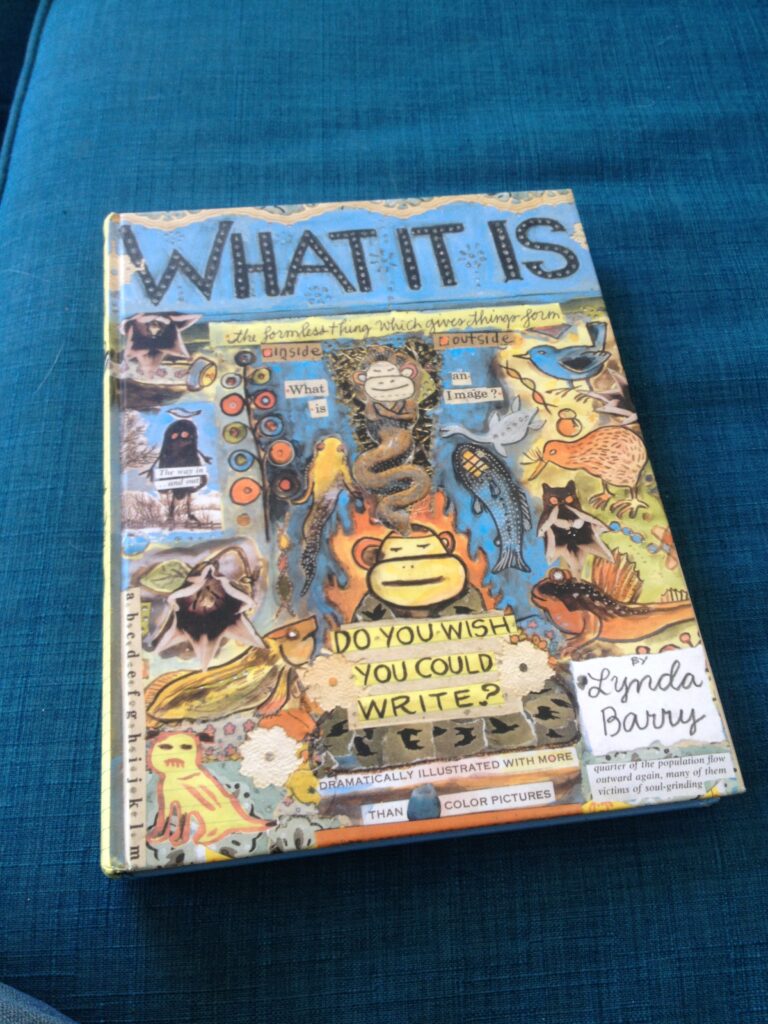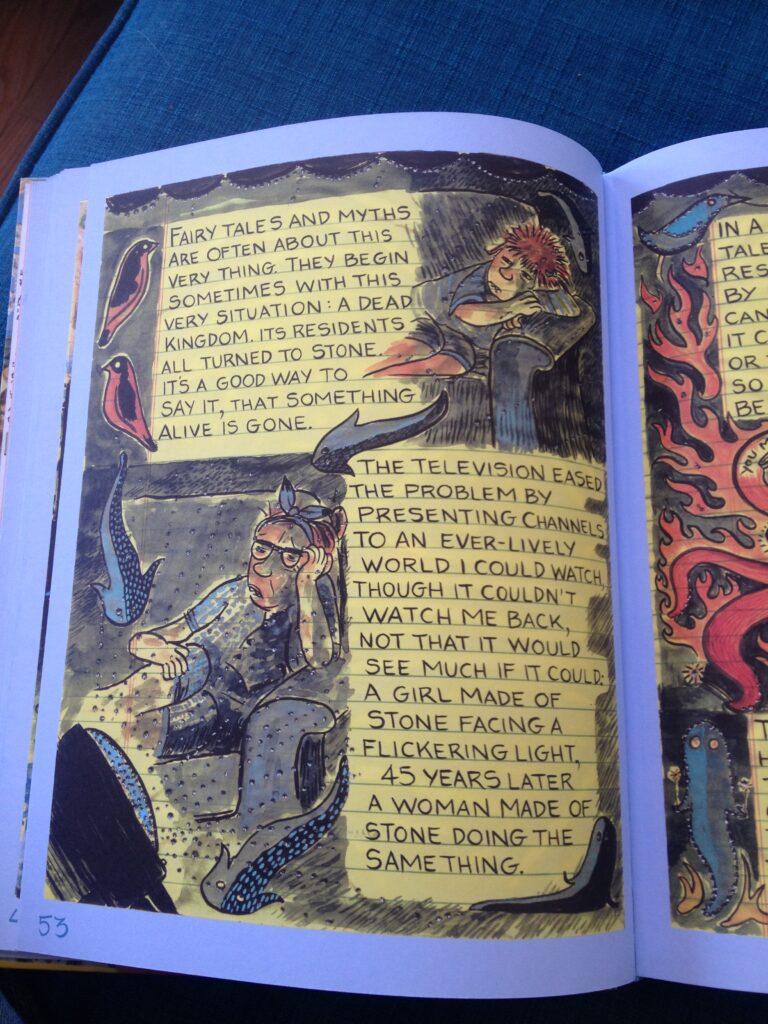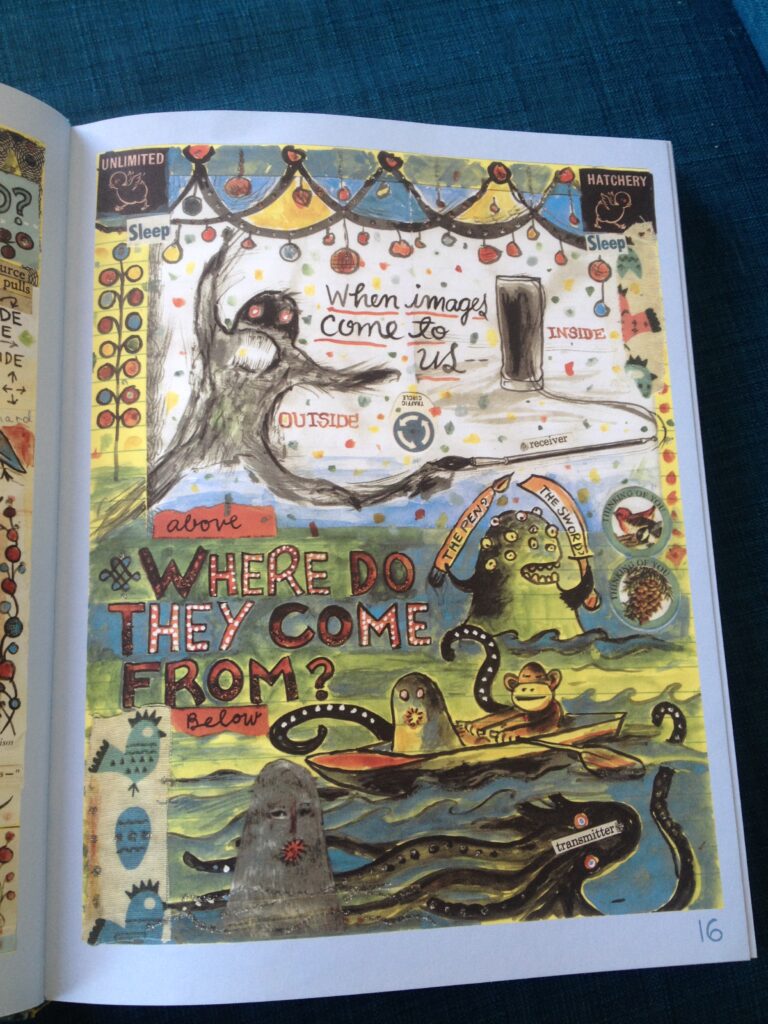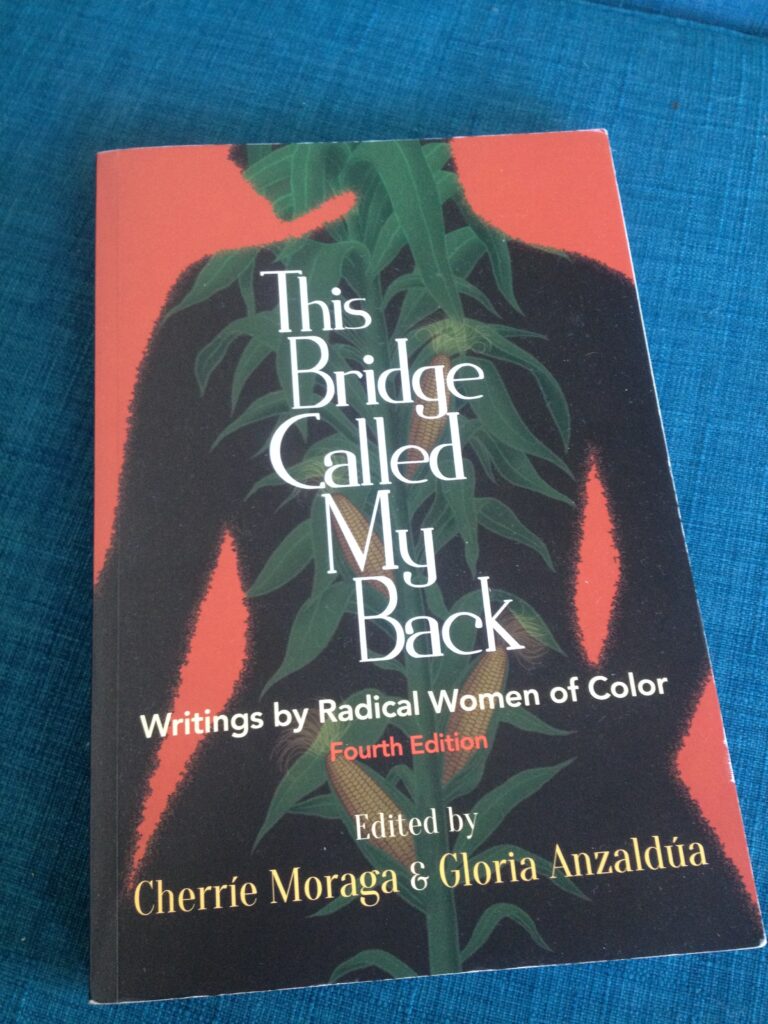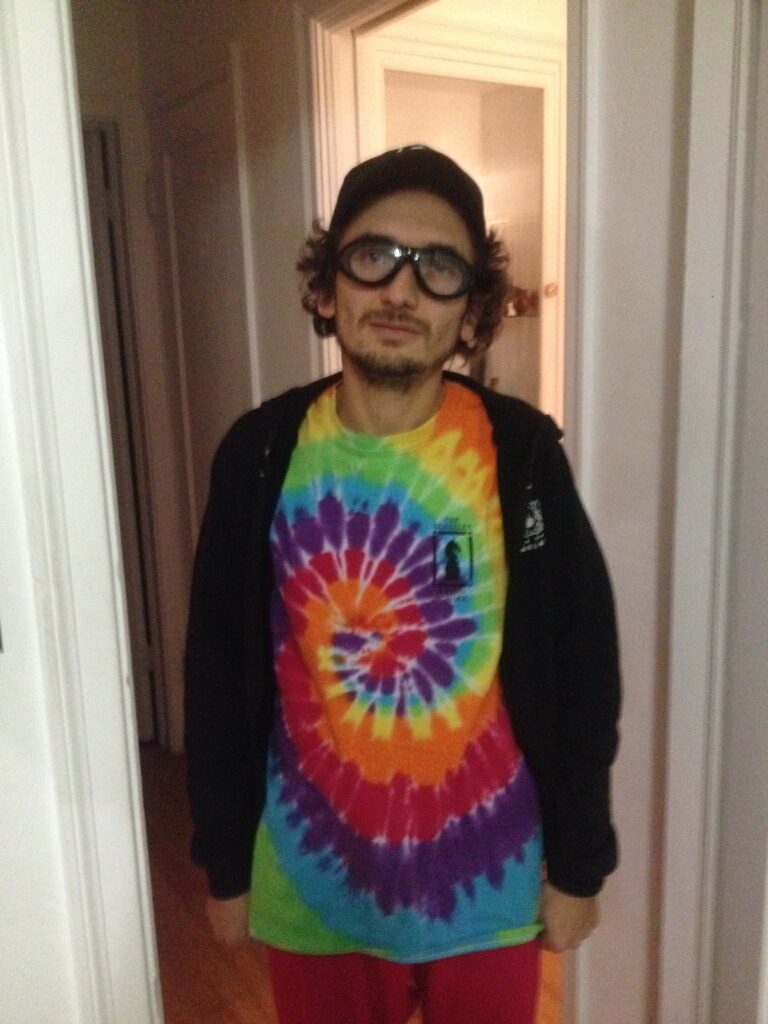In this new series we’ll be hearing from a new person each month, talking on a specific topic of their choosing – something they love, a hobby, an interest, a thread they’ve been feeling lately, or a new discovery.
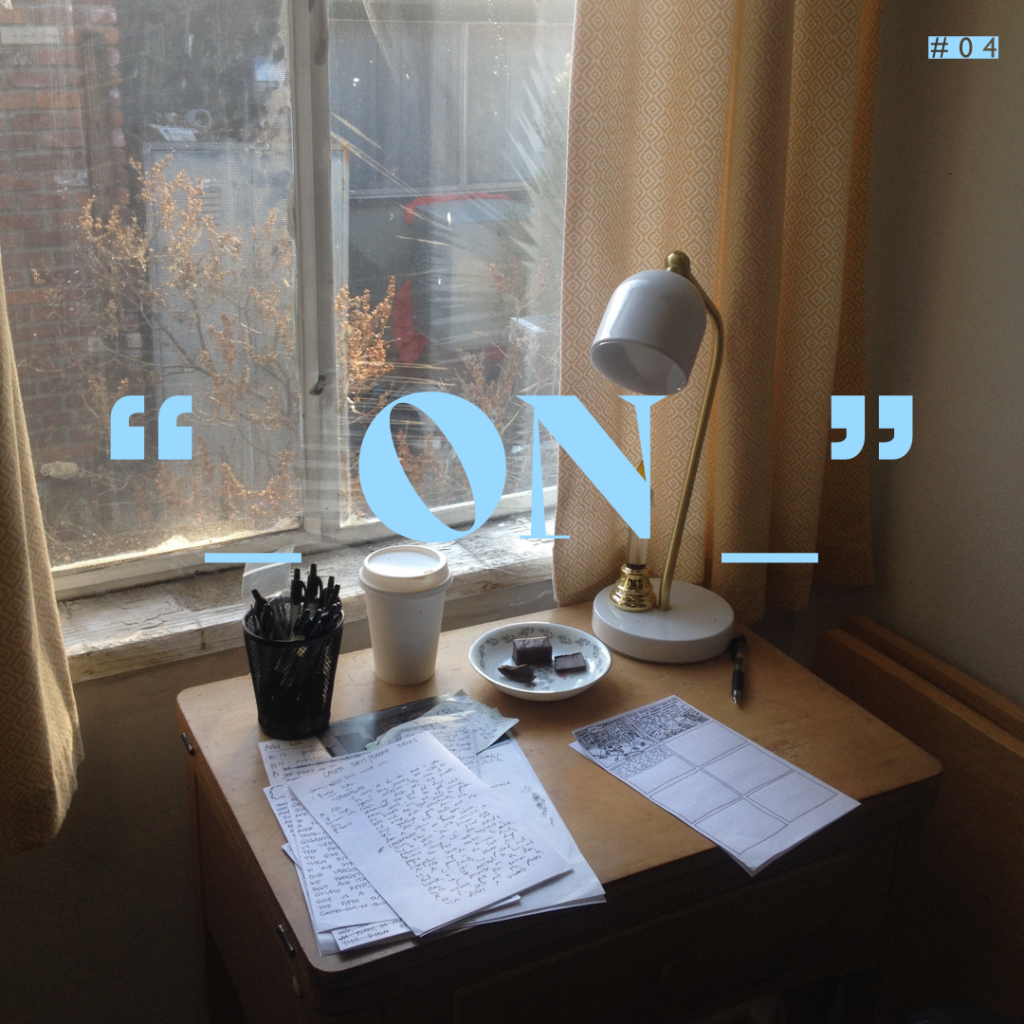
Ilya Arbatman on Reading & Writing
“There’s a lot of chatter these days about learning new things, developing new skills, finding new hobbies – but i’d like to tap the brakes a little bit and remind you of two old skills you already possess: reading and writing. reading and writing lead us out of our mundane, survival-mode selves; they are, at their heart, ways to escape. i don’t mean escape just in the literary sense of transporting you to fantasy worlds where hunky elves shoot arrows at gross orcs, i mean something a bit simpler. when you read or when you write, your mind changes shape, it transforms from a soft, passive absorbing blob, into a churning, active, creature of your own making, and through it you escape into the timeless place where ideas are made – your imagination. if you feel your eyes rolling, it’s because you’ve been brainwashed into ‘growing up’ and feeling shame at any mention of the power of your own imagination. kinda sad to realize that, huh? to be clear, though, the imagination isn’t just the place you go to find things that aren’t ‘real,’ like dragons or unicorns or friendly bike mechanics, it’s also the place you go to figure out how to make sense of and express all that confusing stuff that swirls around in your head and smolders in your chest and pries your eyes open in the middle of the night. we give those murky things lots of provisional names – feelings, anxieties, worries, beliefs – but those are just little verbal incantations we rely on to put off the real work of figuring out what the heck is going on in there. you need your imagination, just like you needed it when you were a kid, to understand the universe, to struggle against it and, occasionally, to make your own peace with it.
since the world ended in march, one of the few still-living parts of my day is the part when i read, and i try to read, if even just for a little bit, every day. i’m not talking about letting my eyes get sucked dry by a scrolling screen, i’m talking about holding a thing made out of paper and sitting on the couch or in the backyard or on a blanket in a park somewhere. if your mouth is opening to say something like, ‘reading is kinda boring’ or ‘i just can’t get into books these days’ or ‘it’s hard finding time and energy to focus on reading,’ i’m going to reply, ‘hold up.’ reading is hella not boring. there are plenty of super boring books out there, though. or at least books that are just kinda…dead. so the question: what to read? like snacks, reading is a matter of taste, and one person’s Trader Joe’s Giant Peruvian Inca Corn could easily be another person’s Ranch flavor Corn Nuts. you have to find the thing that’s yummy to you. with that in mind, i’ll try to keep it open-ended:
essays and cultural commentaries are a good way to catch your breath. Ian Svenonius has three playful and scathingly spot-on books where, tongue firmly planted in his cheek, he tears down everything from Ikea to Dracula to Wikipedia to Sugar Imperialism to Punk Hagiographies and leaves you lost, laughing, and a little embarrassed to to ever use a search engine again. check out The Psychic Soviet, Censorship Now!! and Supernatural Strategies for Making a Rock N’ Roll Group. once your breathing is regular, i’d move on to memoirs, which can be so refreshing in the way they dig into memories with real teeth, not with the soft herbivorous gums of crappy fiction or biography that squeeze and gnash and turn everything into a pulpy mess of ornament and cliche. some memoirs i think you’ll love are A Border Passage by Leila Ahmed, Liar’s Club by Mary Karr, and Fugitive Visions by Jane Jeong Trenka. now you are ready to hit the ground running and get into some poetry and politics. pick up Citizen by Claudia Rankine, a mixed-medium experimental text (don’t be put off by my artsy-fartsy genre description – it reads like vegan butter) that tries to make sense of race and its centrality to our (American) imagination. next, Whipping Girl by Julia Serano, a powerfully articulate transfeminist manifesto (say that three times fast!) that explores the common roots of sexism and transphobia in order to unlock the heavy, heavy doors of gender hang-ups and prejudices that keep us from understanding one another. as you breathe out, you might want to try something completely different- why not take a stroll through early 1900s Europe, a cultural landscape that feels eerily familiar today. The Sleepwalkers, by Hermann Broch, is rad fiction that probes the turn-of-the-century European mind to try and understand why it was compelled to plunge itself, and the world with it, into horrible, unredeemable war. don’t let the dry-sounding subject matter discourage you, because it’s ultimately not the point what a book may be ‘about.’ what i love about fiction is, rather, the author’s style, which is a way to say how the authors uses words to make ideas ‘happen’ on the page. it can be just one magically crafted sentence, one thought turned to reflect your own mind just the right way, and all of a sudden you’re a different person than you were one page ago.
what makes writing ‘good,’ to me, and what all the stuff i listed above offers its reader, is immersion into the author’s way of thinking and understanding the world. that’s the real escape, not necessarily into the world the author concocts, but into the author’s head, behind their eyes, as they concoct it. it’s so satisfying, after a few pages, to find yourself thinking like someone else thinks. i mean, that’s a crazy thing we can do! our life is a constant string of thoughts that we keep tangling ourselves up in, getting snagged, caught, exasperated. when we write, we grab just a few of those strings, pull them gently out of the general mess, lay them down and straighten them out, untwisting them however we can. when you pick up the thread of someone else’s thought, if even just for a moment, that strange, human feeling as you string it taut and pull it through your brain…it’s incredible! being alive is all about connection and when you read what someone else wrote, the communion is real – ‘differences’ melt away, time collapses into nothing, and it’s just you and someone else’s thoughts.
of course, what i am getting at is that if you have even the tiniest inkling to write, do it! be critical of yourself, hate whatever you come up with, do whatever ritual you have to do, but write it and down and let someone else read it. Gloria Anzaldúa’s “Speaking in Tongues: A Letter to Third World Women Writers” is both a candid confession about all the barriers, tangible and intangible, that surround her as she resolves to write, and a determined exhortation to overcome those barriers, no matter what. there’s the little stuff – distracting yourself with snacks and fidgeting around the house – and the big stuff – interlocking oppressions that systematically silence and devalue anything that comes from outside of the tradition, the canon, the mainstream, the white, the vetted – she writes, “The voice recurs in me: Who am I, a poor Chicanita from the sticks, to think I could write?” and yet, she does. she explains in plain words, “I write because I’m scared of writing but I’m more scared of not writing.” the urgency in her voice is a call to others, to anyone buried in self-doubt, most pointedly it’s a call to queer women of color: “The lesbian of color is not only invisible, she doesn’t even exist. Our speech, too, is inaudible. We speak in tongues like the outcast and the insane.” and yet, you are reading her words and they make perfect sense, they land with grace and composure and a firm foothold in your ears 40 years after they were written. Anzaldúa’s letter is part of an anthology she co-edited, This Bridge Called My Back: Writings by Radical Women of Color. when it first went into print, This Bridge Called My Back was the idealistic project of a couple of ‘unknown’ young writers, an experimental book of poetry and manifesto and radical thought. four decades later it’s in its fourth edition and a 34-year old jewish man in Reno, Nevada has it open on his chest as he considers how to best incorporate it into his Instagram post intended to get you to pick up your pen and, in Anzaldúa’s words, “Put your shit on the paper.”
some small notes to close on: write with a pen on real, live paper whenever possible and try to cross out as little as possible. find a pen you like, that feels nice to write with, and maybe avoid lined paper – it’s kind of oppressive. i like to fold a blank (scratch paper, of course!) 8.5×11 in half and write in all caps. easier to build momentum while staying legible that way. trust the blankness of the page to carry you along. once you start, just keep going until you reach the bottom of the paper. you’ll find your thoughts like the pen better than they like you – things come out kind of on their own. a really, really fantastic book about writing, memory, inspiration, drawing, growing-up, disillusionment and then dis-disillusionment, or just illusionment, i guess, is Lynda Barry’s What It Is. on the cover she asks, ‘do you wish you could write?’ the book is part memoir, like a lot of her stuff, part playful syllabus, part straight-up workbook, part silly comic, part philosophical exploration of the origins and nature of images, memories, thoughts, stories, all of the unreal stuff that actually makes our world go ‘round. since I’m ending with Barry, i’ll add: originally, i wanted this post to be on reading, writing and drawing, but i kind of rambled too long and maybe drawing is better addressed with fewer words and more drawings. but maybe it doesn’t need to be addressed at any great length, anyway. it’s simple – you can draw! so go and do that, too! remember how fun it was drawing when you were a kid? guess what? it’s still hella fun!”

